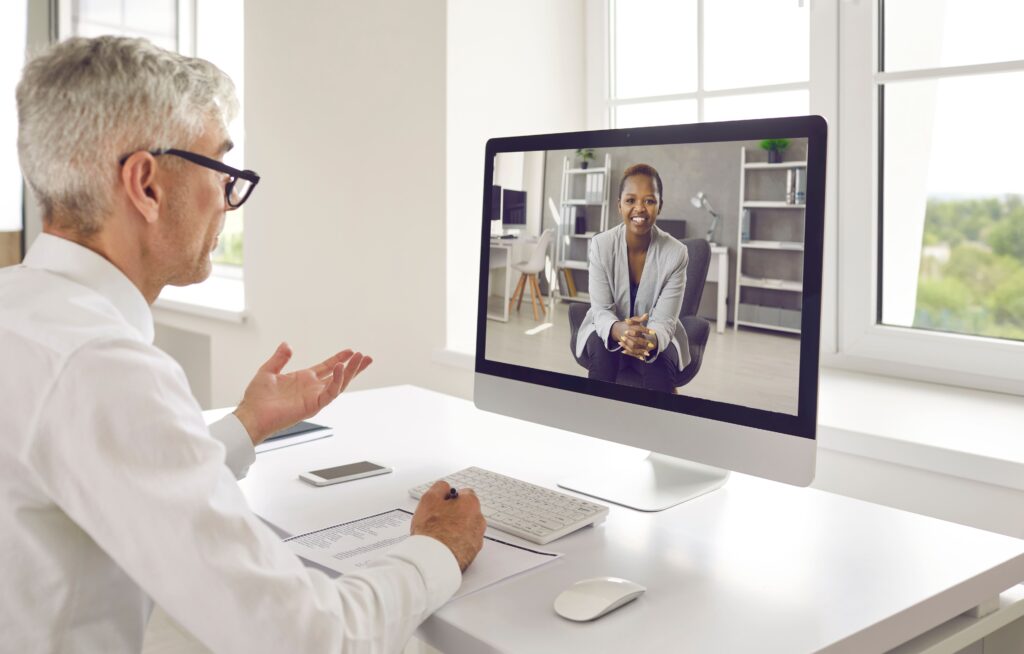Any interview can be daunting, but technical interviews add a layer of complexity that it is distinct from other types of interviews. I am going to share some pointers on how to set yourself apart from other candidates. For technical interviews, you need to not only be able to prove your skill level but also that you have the right professional personality to fit in with the team and represent the company well.
Whether you are an interview pro or a little rusty, these interview tips will help you prepare for and crush that technical interview.
A Technical Interview Is Distinct From Other Types Of Interviews
Many of my technical interviews have a hands-on portion, where the interviewee shares their screen and solves a problem in real time. Whether this is writing code or troubleshooting, be ready for this by closing unnecessary windows and having an application open for writing, sharing thoughts, etc.
It is SUPER important to discuss your approach during this exercise. Employers want to know why you are going about the solution in the way that you chose and walk them through your steps. Even if the final answer is wrong, sometimes: process, mindset, and technical know-how are sound enough to land that position.
You’ll want to fully prepare for related technical questions. Do a deep dive, brush up, and practice session before the interview. This is especially true if it’s been some time since you last touched an item on the job description.
You should respond to questions with confidence. Make sure your answers are focused, detailed, and process-oriented. Never answer with a yes or no outright. If you don’t know the answer to a question, be honest, however, you can also explain similar technologies you have worked with before.
Use real-world examples of where you have done this type of work in the past, know the big picture, and discuss that openly with the interviewer. Try creating a list of examples for yourself that fits the job description, that way these previous projects will be top of mind when the questions are asked in the interview. Even better, do you have examples of previous work to share? Try keeping a portfolio of work handy for future interviews.

Be Prepared To Demonstrate
- Focus on Technical Skills: The main purpose of a technical interview is to evaluate a candidate’s technical aptitude and knowledge in a specific field. This can include areas like software development, engineering, IT, etc. For instance, a software engineer might be asked to write code or explain algorithms during a technical interview.
- Problem-Solving: In a technical interview, the interviewer often presents the candidate with a problem or task that they must solve. This problem usually pertains to the job for which they are applying and is meant to demonstrate their problem-solving skills, creativity, and ability to work under pressure.
- Demonstration of Practical Skills: While many interviews will ask about a candidate’s experiences and behaviors, a technical interview often requires the candidate to demonstrate their skills practically. For example, a candidate for a software engineering position may be asked to write a piece of code or debug an existing one.
- In-depth Discussion on Technical Topics: The conversation in a technical interview is heavily concentrated on specialized topics, often diving deep into specifics of certain technologies, methodologies, languages, tools, or problems in the relevant field.
- Assessment of Theoretical Understanding: A technical interview not only assesses a candidate’s practical skills but also their theoretical understanding of fundamental concepts related to the job. This can include discussions on computer science concepts, engineering principles, or other industry-specific theories.
- Usage of Specific Tools: Depending on the position, a technical interview might also involve the use of certain tools. For example, software engineering interviews often utilize whiteboards or coding platforms for on-the-spot coding exercises.
- Data Structures and Algorithms: For tech jobs, especially software development roles, understanding and implementing data structures and algorithms is a significant part of the interview. Candidates are often assessed on their ability to choose and apply the most appropriate data structures and algorithms to solve given problems.
- System Design: For more senior technical roles, the interview might involve designing a system or architecture to handle certain scenarios or fulfill specific requirements.
While technical skills are critical, many companies also consider soft skills and cultural fit during the interview process. So now let’s look at the steps you should take to prepare for your technical interview.
Pre-Interview
Approach Contract and Direct Hire Interviews in a similar manner.
As with any opportunity you pursue, you’ll want to review the company information and really think about why you are interested in working for that company. Contract opportunity is no different. Culture and overall company collaboration is a great way to go about answering this question, but you should also think about the technical stack and career growth the company is offering for you in IT. Companies love to hear feedback on their websites/technology stack/approach and if you had a great user experience, share that as well.
Dress the part.
When it comes to what you wear, treat your video interview as you would an in-person interview. Dress professionally from head to toe (or at least from head to waist!). A professional dress code with video interviews is expected, not excused.
Prepare your surroundings.
Pick a quiet place to interview without an elaborate backdrop so that you can be the focal point on the screen. Remove anything distracting behind you and keep it neutral.
Practice Makes Perfect.
Doing a run-through interview with your recruiter or a trusted friend beforehand is helpful, ask for honest feedback on your style and tweak accordingly. It’s likely that your first few video interviews will feel awkward, especially if you need to retrain yourself to watch the camera and not the screen. Spend time beforehand so that when it’s interview time, you can shine.

During The Interview
Look at the camera, not the screen, and don’t wear your headphones or connected earbuds.
It is very tempting to look at the video feed during a video interview, remember that looking directly at the camera is the only way to maintain direct eye contact with your interviewer. There has been a recent spike in video interview fraud. Individuals get help from another party via their headphones/earbuds. Avoid any issues here and just don’t use them.
Listen more than you speak.
Be sensitive to the style of the interviewer. Follow his or her lead in answering the interview questions. Don’t run the interview, us “A” personalities tend to take over the interview. Let the interview flow naturally and keep your answers to the point, if your interviewer wants more, they will ask the follow-up question.
Relate.
Try to relate your answers to the interviewer and his or her company. Focus on achievements relevant to the position.
Be Honest.
Reiterating this point. It is not a good move to dance around difficult interview questions. If you don’t have the experience, just state that. Don’t try to cover it up by talking and giving examples that aren’t relevant. You certainly can speak on related skills; just ensure you discuss the commonalities.
Don’t rely too much on your notes.
Just make sure your notes are easily scannable so that you use them as quick reminders, not a script. While having notes is certainly a plus, relying too heavily on them can cause awkward pauses during your interview. An interviewer won’t be impressed if they see you reading off responses and/ or questions from your notes.
Avoid interruptions.
If you are interviewing in a house with multiple people or pets, be sure to let everyone in the house know ahead of time that you will be in an interview. While securing any animals away from your interview space. Nothing is less professional than having to tell your potential employer to hang on while you shoo your dog away from the camera.
Watch your body language.
Not all physical cues translate from in-person interviews to video interviews, which make the ones that do even more important. Be sure to have good posture and relax your shoulders to avoid stiffness.
Make sure the interviewer is engaged.
Be sure to stop occasionally, and make sure your interviewer is engaged in what you are saying.
Post-Interview
Follow-up. Thank you notes have not gone the way of the Dodo bird. If you want to stand out, then send a thank you email (or emails if there were several interviewers) that reinforces your interest in the position and recaps why you are the right person. And if you really want to stand out, reference something personal that you learned from the interviewer(s) that creates a connection.
Final Thoughts
Don’t overthink it! This is a conversation between you and a company representative, where both of you are trying to decide if this is the right fit. People like to hire people they can relate to, so keep it conversational, and don’t bring your ego! Let’s go crush that interview!
About the Author: Angel Wade

Angel is a Recruiting Director at System Soft. She’s devoted to sourcing, engaging, and placing talent for roles in information technology. She has extensive experience in a wide variety of complex IT environments. This empowers her to deliver strategic and zealous advocacy of talented IT professionals, ensuring the best possible positive hiring outcomes.
